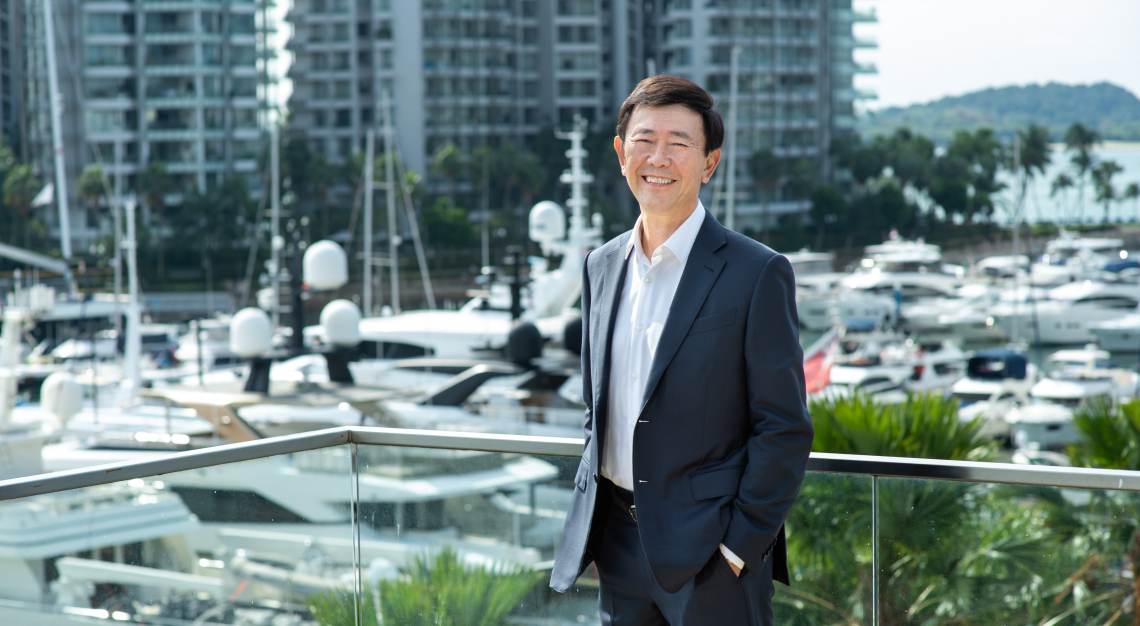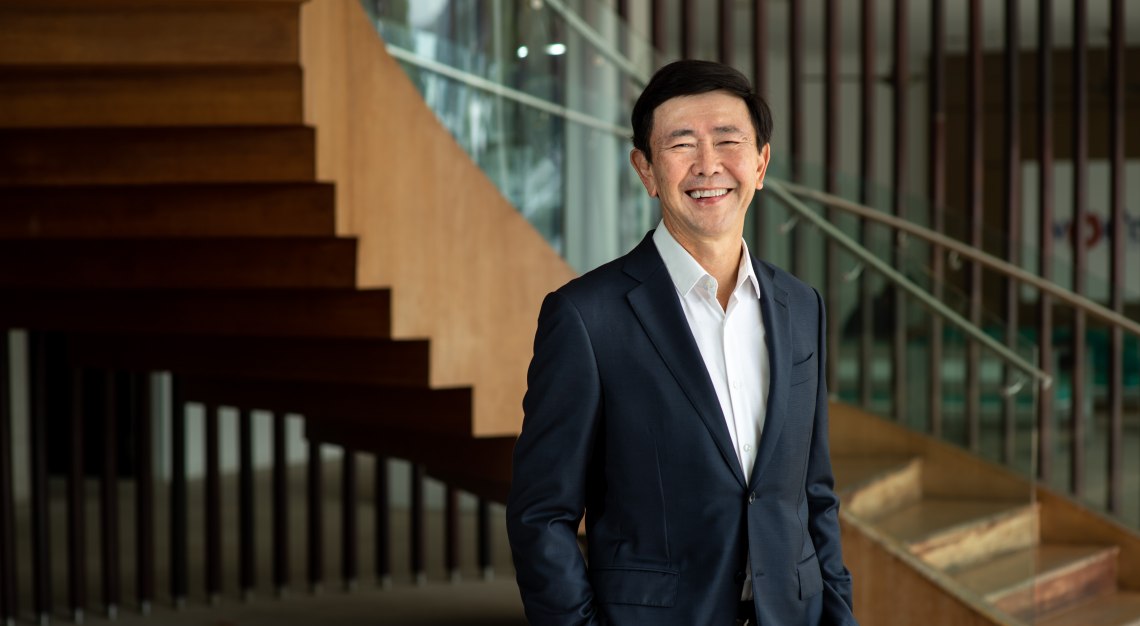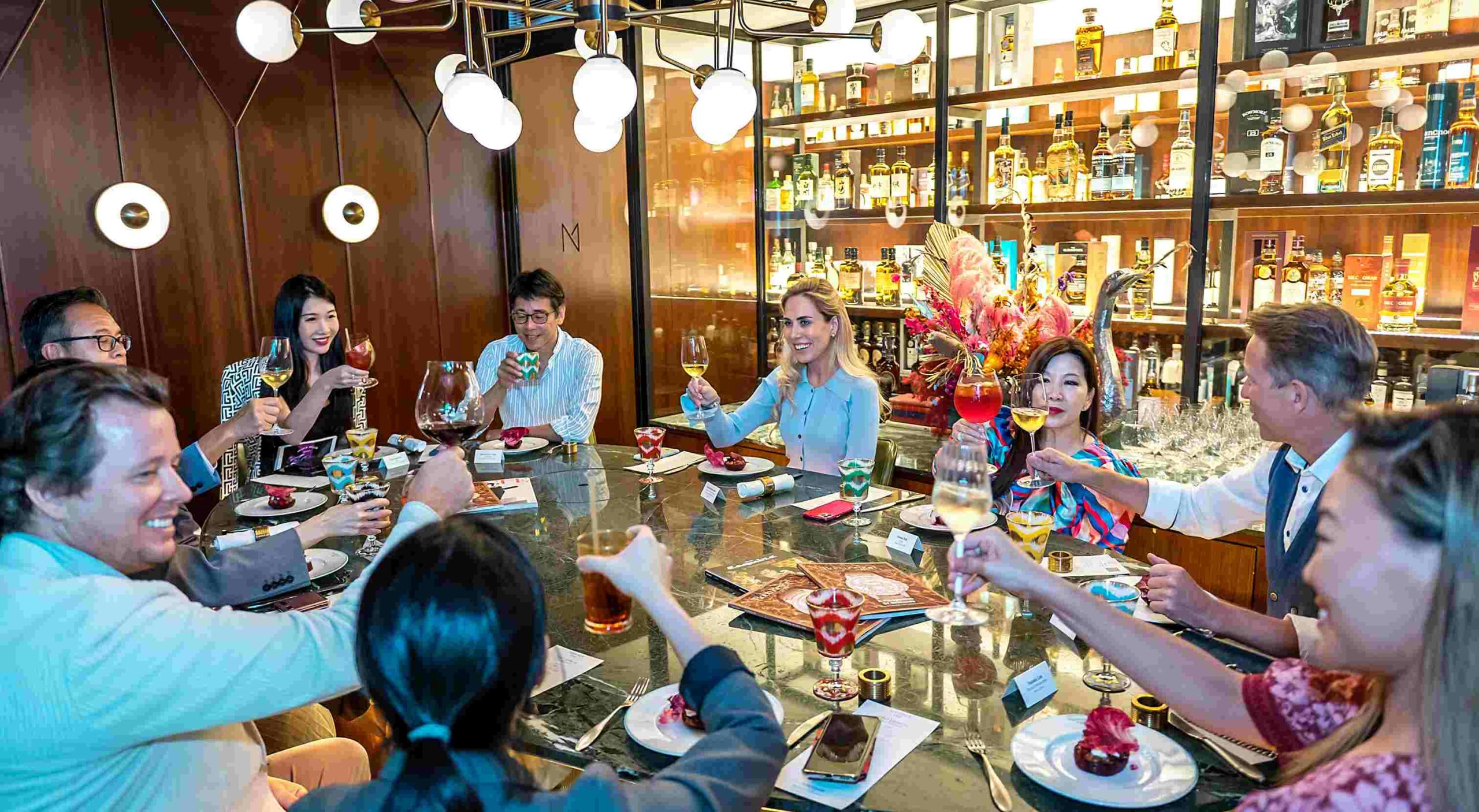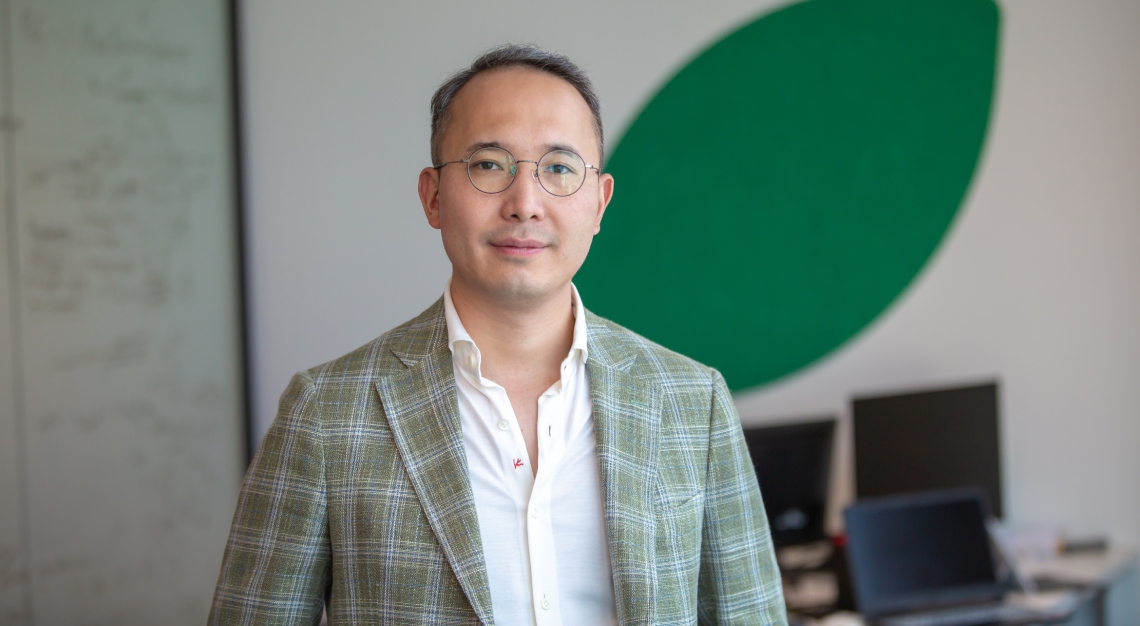The Answers With… Arthur Tay, who wears his passion for sustainability on his sleeve and shines a light on the importance of marine conservation
Arthur Tay is a beyond-accomplished entrepreneur and captain of industry—but he is first and foremost, a father. That fact colours his approach to life as well as business.
As the CEO and chairman of the the SUTL Group of Companies, which presides over an expansive portfolio of brands from the leisure and lifestyle, consumer goods and environmental sectors, he oversees a sprawling enterprise that encompasses some the biggest corporate entities in the world, such as Nike and 3M. Incepted by his father Tay Choon Hye, in 1968, as a ship chandelling and trading firm, SUTL now also owns and manages marinas all over the world, including the ONE15 Marina in Singapore.
Besides being instrumental to it winning a slew of awards and accolades—a particularly prestigious one being the Platinum Gold Anchor Award by Marina Industries Association, which it was the first marina in Southeast Asia to receive—he has also maintained a longstanding commitment to sustainability and philanthropy within and beyond the marina. In our chat with him, he minces no words that his passion for marine conservation is as much inspired by social good as it is by the fact that he is a loving father concerned about the health of the world future generations will inherit.
Here, he sheds light on how, with endeavours such as the Blue Water EduFest, the yachting community can make inroads into sustainability and marine conservation.
Let’s start with your personal story. What drew you to philanthropy and giving back to society at large?
It definitely stems from my upbringing, my father and my Tay Choon Hye, who was a pivotal figure in philanthropy. Notably, he supported the National Kidney Foundation (NKF), and made a donation to it in 1999 that became instrumental in the creation of the NKF Whampoa Centre, a cornerstone in delivering crucial dialysis services to those battling kidney disease. This centre has remained a lifeline for countless individuals. I am deeply committed to continuing my father’s legacy of charitable endeavours in his honour.
Why is marine conservation important to ONE15?
The ocean holds a central place in our marina business and daily operations. We recognise the importance of preserving marine ecosystems to ensure a sustainable future. Our commitment extends to the promotion of responsible boating practices and the cultivation of a harmonious coexistence with the marine world, both of which are integral to our core values and sustainability efforts.
What role does the marina play in the sustainability and conservation of the marine ecosystem that surrounds it?
In our commitment to environmental stewardship, we appointed ONE°15 Eco Advisors and introduced ground-breaking projects like the ONE°15 Marina Coral Garden, Singapore’s first man-made coral garden in a marina. Furthermore our hosting carbon- neutral events, such as Energy Observer in March 2022 and Planet Solar in 2011, serves to educate the public about sustainability.
To combat marine pollution, we’ve installed Collec’Thors machines capable of handling up to 100 kilograms of solid or liquid waste, including microplastics. Our green pumpout boat, powered by an electric engine, contributes to responsible waste management. In our carpark, we’ve introduced EV chargers to support electric vehicles. We are also currently working on establishing a SeaVolt recharging station to support electric vessels and creating designated berths for electric boats, encouraging boaters to consider electric options.
Furthermore, we’ve taken comprehensive steps to eliminate single-use plastics throughout our Club, including hotel rooms, meetings, restaurants, and the marina. We’ve banned non-biodegradable waste like balloons and confetti especially for guests who’ve booked parties or events on the yacht charters . We’re also part of a food waste recycling program that transforms dry food waste into compost.
What do you make of the increasing convergence between luxury and the heightened discourse on sustainability these days?
The transformative shift in the luxury industry is not only positive but also essential. It mirrors an evolving consumer mindset where luxury transcends mere opulence and embraces a sense of responsibility. Recognising the significance of incorporating sustainable practices into high-end leisure, we aim to cater to the growing community of environmentally conscious individuals. For businesses like ONE°15, this marks a valuable opportunity to lead by example, reinforcing the idea that luxury and sustainability are intricately intertwined, setting a new standard for the industry.

The Blue Water EduFest returns for its second edition this November. Why is it important to ONE15?
The Blue Water EduFest stands as a pivotal platform for our dedicated advocacy of marine conservation, an endeavour deeply ingrained in ONE°15’s values due to our profound commitment to preserving the ocean and coastlines. Through this initiative, we achieve a dual purpose: raising crucial awareness about the pressing matters of marine conservation while spotlighting the alarming decline of our coastlines and the fragility of marine biodiversity.
From your vantage point, what’s the best way a yacht-owner can make a positive impact?
That’s a good question. Yacht owners can make a significant environmental impact by embracing sustainable boating practices. This includes the use of eco-friendly technology like energy-efficient engines and renewable energy sources, reducing fuel consumption, and responsible waste disposal at sea. Additionally, supporting marine conservation initiatives and organisations is vital. The rise of hydrogen-powered boats and yachts repurposed for exploration, with boaters engaging as citizen scientists, bridges science and conservation for ocean stewardship. ONE°15 Marina and the yachting community play a pivotal role in championing ocean conservation, and adopting a ‘leave it to others’ mindset hinders our potential to drive positive change.
Do you think owning a yacht should come with a sense of responsibility to the environment?
Absolutely. As a boater myself, I’m disheartened to see less and less fish each time I dive. Bleaching and global warming are pushing deeper and deeper into the ocean. Boaters have to realise that if they don’t do their part, they may not be able to see coral of fish in the future even thought that’s why they bought a boat in the first place.
Beyond the marina, how do you think the average individual can make a difference?
By making little changes to the way we live. For example, it’s a good practice to keep a reusable water bottle in your car for easy refilling.
Social media is a great tool to spread great awareness about environmental change. By sharing impactful stories and information about ocean conservation and climate change on social media, we can empower ourselves as environmental advocates and create a ripple effect that inspires collective action and awareness for change. Everybody has a part to play.
In the general sense, how would you say you have successfully operated SUTL while making concerted efforts to not negatively impact the environment?
None of us can do it alone. It has to be a collective effort. At ONE°15 Marina, our commitment to sustainability is at the core of our marina business operations. We’ve initiated practices that embrace sustainability, including our collaboration with the National University of Singapore’s Tropical Marine Science Institute to establish a thriving Coral Garden. This partnership, which began in 2018, exemplifies our dedication to supporting marine ecosystems. Additionally, we conduct annual marina clean-up efforts, actively engaging in environmental stewardship and fostering a culture of responsible marina management.
Lastly, after your years of involvement, what still keeps you inspired about working in the areas of sustainability and philanthropy?
For the sake of our children and the generations that come after. Just standing around isn’t going to accomplish anything. This is the world they will inherit. Therefore, they need to be stewards of Mother Earth.
As I enter a stage in life where leaving a lasting legacy becomes increasingly significant, the act of giving back to society holds a special place in my heart. Witnessing the profound and positive impact of our contributions, particularly in support of organisations like the National Kidney Foundation (NKF) and the Tay Choon Hye Dialysis Centre, serves as a constant reminder of the importance of this commitment.
Knowing that these efforts bring about tangible improvements in people’s lives and contribute to a healthier environment provides an enduring wellspring of motivation. The drive to give back to society, coupled with a growing awareness of pressing global issues such as climate change and ocean deterioration, fuels our determination to pursue sustainable solutions. Initiatives like the Blue Water EduFest underscore our dedication to addressing these challenges and making a meaningful difference in the world.






